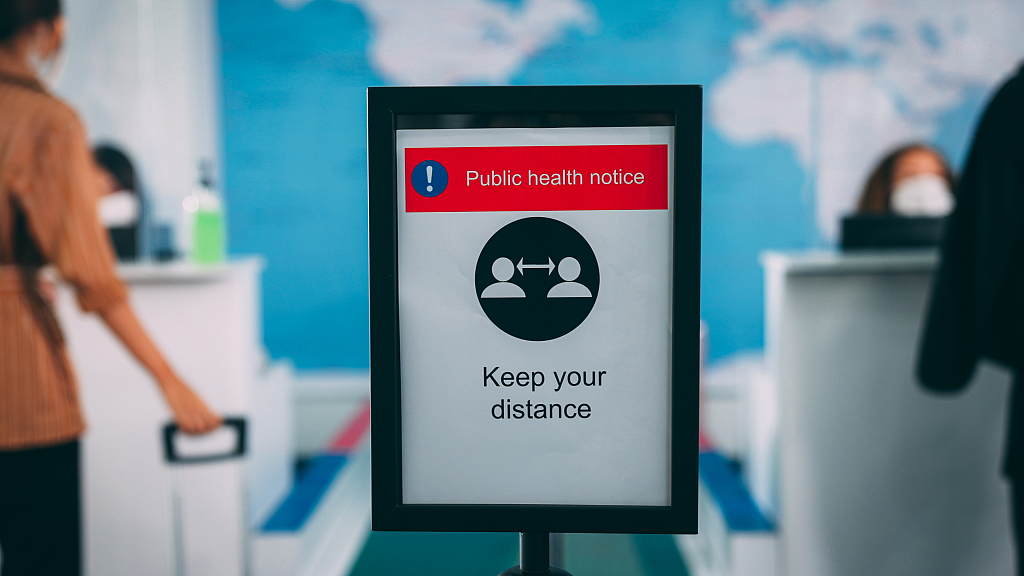
Travel restrictions and border closures have not stopped people from going overseas for work, and the rise of technology has enabled new trends that are most welcomed in wealthy Western countries, the latest survey on expatriates' experiences shows.
Despite coronavirus-related disruptions to international travel, more than half of those residing in a foreign country or considering a cross-border move in the past year said the pandemic has not directly impacted their current stays or future plans. This is according to the 2021 survey conducted by InterNations, a Munich-based global network for expats with more than four million members.
Who are the globetrotters?
Citing this year's survey data from 8,313 overseas residents representing more than 160 nationalities and working in 175 destinations worldwide, the organization has found that the group comprises mostly well-educated people, of whom 80 percent are university graduates. Over half hold advanced degrees, while others are white-collar workers in mid- to senior-level positions.
According to InterNations, about a third of the respondents employed overseas earn an annual income ranging from $50,000 to $100,000, with the most common industries being education, IT and finance. Other sectors include manufacturing and engineering, healthcare, advertising, marketing and communications.
What changed during COVID-19?
Many people have had to change their plans during the pandemic, with disruptions to personal travel and social life being the biggest concerns for working expats, said Stephanie Anko-Hubik, the media spokesperson for InterNations.
"Personal concerns clearly outweigh economic or financial ones," Anko-Hubik told CGTN. However, she acknowledged that the figures might exclude people who have already moved home or are unemployed due to COVID-19.
About one in five of those who have returned home from a stay abroad said that they returned earlier than originally intended due to reasons related to COVID-19. Over 60 percent of the returnees cited personal reasons, including wanting to be closer to family and social isolation abroad. Meanwhile, 46 percent also planned to return to their life abroad within the year.
The survey also showed that an overwhelming 77 percent of local respondents who had to put their relocation plans on hold at this time said they still want to move abroad within the next two years.

COVID-19 has had a major impact on international travel. /CFP
COVID-19 has had a major impact on international travel. /CFP
Remote work on the rise
Remote work emerged as a trend after the economy reopened. One U.S.-based study showed that job searches for remote positions increased by 460 percent between June 2019 and June 2021.
The trend is set to be further bolstered by the continuous rollout of remote work visa policies in countries looking to revive their virus-hit local economies.
Many overseas professionals have managed to keep working during the pandemic as their employers embrace remote work for expats either fully or partly.
According to the InterNations survey, in 2021, nearly four in five or 78 percent of the expats surveyed can work remotely, among which 39 percent work entirely remotely.
Read more: Becoming a 'digital nomad': Next for working from home?
Best places to be?
The pandemic has given rise to concepts such as "new work," an umbrella term characterized by harnessing the power of digitization and globalization to rethink job roles and the approach to work to make it more flexible; working remotely is an example of "new work."
According to the InterNations team, "new work" has begun to be embraced by many countries, and they were curious to see which countries would rank first "with regard to the importance of new work in the local business culture." The top 10 countries to have done this are the United States, the United Arab Emirates, Finland, Estonia, the Netherlands, Bahrain, Australia, Canada, New Zealand and Sweden.
The global trend regarding the importance of "new work" was a surprising discovery in the 2021 survey, Anko-Hubik told CGTN. "This geographical work regarding new work is pretty interesting and unusual."
Nevertheless, when it comes to the best places to work as a foreigner, financial compensation and benefits remain the most important aspect for expats who also consider soft factors, such as safety, friendliness and work-life balance.
"Businesses all around the world will have to offer more within the context of 'new work.' However, this is not all that expats ask for," said Malte Zeeck, InterNations founder and co-CEO.
"Despite a growing desire for self-fulfillment and personal development, crucial factors such as a good salary remain extremely important for expats in a business context."
China was rated a top destination for working abroad in 2021, along with New Zealand, the Czech Republic and Denmark.
(Cover photo by CFP)

